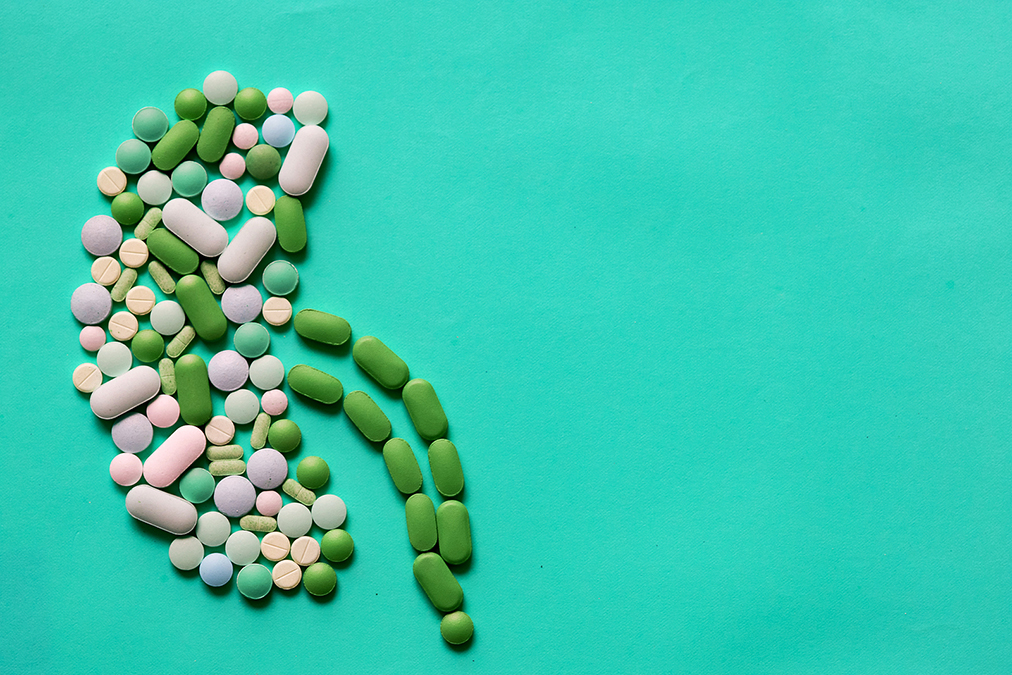 Sometimes the cure is worse than the disease.
Sometimes the cure is worse than the disease.
And that seems to be the case with many chronic kidney disease mediations according to a new study from the Clinical Journal of the American Society of Nephrology.
Even worse, the side effects become more and more severe the longer that people took the medications. Doctors tend to prescribe chronic medications for chronic conditions, which is unfortunate because the harmful effects of drugs tend to be cumulative, i.e., they increase in quantity or degree the longer that patients take the drug.
And some of the side effects even include kidney failure and death.
The most common medications prescribed for chronic kidney disease are renin–angiotensin system inhibitors, antithrombotic agents, and diuretics.
The first of these interferes with the system that controls blood pressure and fluid and electrolyte balance, the second reduces the formation of blood clots, and the third increases the amount of water and salt patients excrete in the form of urine.
The subjects of the new study all had non-dialysis chronic kidney disease; 65 percent of them were male, and the average age was 69. They all had an estimated glomerular filtration rate (eGFR) of less than 60 mL/min/1.73 m2 (milliliter per minute per square meter). The researchers obtained their data from the Chronic Kidney Disease-Renal Epidemiology and Information Network.
Over just two years, 536—18 percent—of these subjects experienced 751 negative drug reactions, with 150 of these serious and 16 of them fatal.
The scientists obtained details of the negative drug reactions from hospitalization records, complete medical records, and participant interviews. They could then calculate whether these consequences stemmed directly or indirectly from the drugs.
Two-thirds of these negative reactions were renal and urinary problems, especially acute kidney injury and hemorrhages. It’s ironic when drugs for kidney disease actually cause kidney damage.
Problems in the gastrointestinal, muscular, skeletal, and connective tissue systems were also fairly common.
Incredibly, the patients were prescribed an average of 8 different drugs, with some of the patients receiving more than 12.
Those with an eGFR of less than 30 mL/min/1.73 m2 were 56 and 82 percent more likely than the rest of the study population was to suffer negative or serious negative reactions, respectively.
Compared with those who took five or fewer drugs, those prescribed more than 10 drugs were 1.6 times more likely to suffer negative reactions and 2.1 times more likely to suffer serious negative reactions.
Therefore, although they seem to be simple solutions to serious health problems, remember that drugs cause their own problems that can, as in 16 of these cases, be deadly.
A better option is to treat your kidneys naturally using simple lifestyle changes explained here…

 Overcoming IBD
Overcoming IBD Multiple Sclerosis
Multiple Sclerosis Banishing Bronchitis
Banishing Bronchitis Gum Disease Gone
Gum Disease Gone Overcoming Onychomycosis
Overcoming Onychomycosis Neuropathy No More
Neuropathy No More The Prostate Protocol
The Prostate Protocol Brain Booster
Brain Booster
 Ironbound
Ironbound
 Solution for Shingles
Solution for Shingles
 The Bone Density Solution
The Bone Density Solution
 The Ultimate Healing Protocol
The Ultimate Healing Protocol
 The Parkinson's Protocol
The Parkinson's Protocol
 The Chronic Kidney Disease Solution
The Chronic Kidney Disease Solution
 Overthrowing Anxiety
Overthrowing Anxiety The Fatty Liver Solution
The Fatty Liver Solution The Hypothyroidism Solution
The Hypothyroidism Solution
 The End of Gout
The End of Gout The Blood Pressure Program
The Blood Pressure Program
 The Oxigized Cholesterol Strategy
The Oxigized Cholesterol Strategy
 Stop Snoring And Sleep Apnea Program
Stop Snoring And Sleep Apnea Program
 The Arthritis Strategy
The Arthritis Strategy The Vertigo & Dizziness Program
The Vertigo & Dizziness Program The 3-Step Diabetes Strategy
The 3-Step Diabetes Strategy Hemorrhoids Healing Protocol
Hemorrhoids Healing Protocol The Erectile Dysfunction Master
The Erectile Dysfunction Master Weight Loss Breeze
Weight Loss Breeze The IBS Program
The IBS Program The Insomnia Program
The Insomnia Program The Migraine and Headache Program
The Migraine and Headache Program The Neck Pain Solution
The Neck Pain Solution The Menopause Solution
The Menopause Solution The Ejaculation Master
The Ejaculation Master The TMJ Solution
The TMJ Solution The Acid Reflux Solution
The Acid Reflux Solution The Fibromyalgia Solution
The Fibromyalgia Solution The Psoriasis Strategy
The Psoriasis Strategy